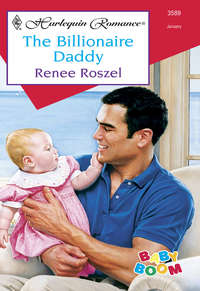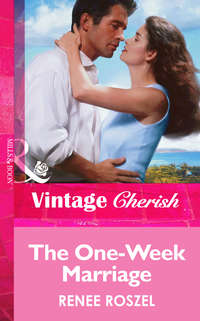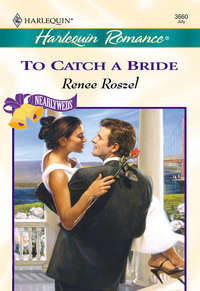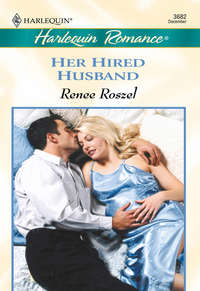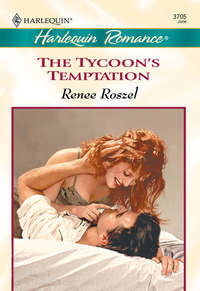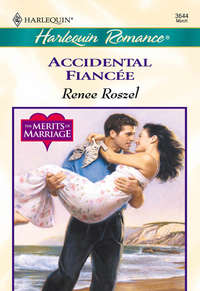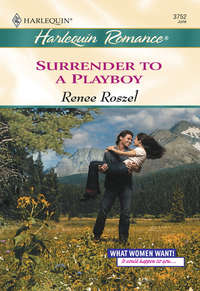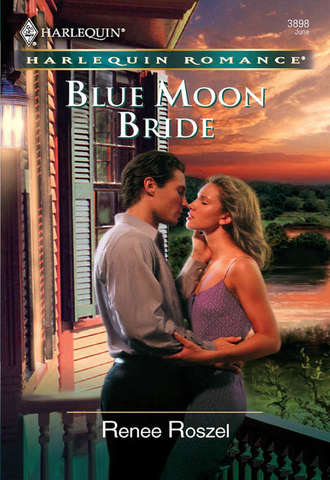
Полная версия
Blue Moon Bride
He said nothing, merely watched her. She was positive he felt her alleged headache was open to question. So what if he was right? It was none of his business if she wanted to lie about having a headache. It’s a free country, Mr. Jerric, she threw out silently. Believe me or don’t believe me. I couldn’t care less. “Excuse me, everybody.” She dashed out of the dining room, into the foyer and up the stairs.
An hour later, Hannah considered leaving her room. Maybe it was safe. Surely by now breakfast was over and Roth was busy doing whatever he came to the inn to do—fishing, boating, making other people feel inferior. She pushed off the bed and walked to her balcony door, overlooking a quiet cove some one hundred feet down a gentle, tree-lined slope. She couldn’t hear the lapping of the water from this distance, but somewhere out on the lake she heard the drone of an approaching motorboat.
Through branches she thought she could see a sailboat. Yes, there it was, its white sail billowing in the wind. She opened the multipaned door, feeling a little better, and took a deep breath of fresh air. The day would be warm. June had been un-seasonably cool, but July in Oklahoma could see temperatures soaring to three digits. Soon the weather would be too hot for open windows and enjoying fresh breezes off the lake.
A knock at her door exploded her positive mood. She recognized the force of that knock. It had to be Roth Jerric. Closing her eyes, she took in another breath of fresh, country air. “What now?”
“How are you feeling?”
She wanted to tell him the truth, that she felt depressed, and a great deal of her depression had to do with him. “If you mean the headache, I’m fine.”
“Can I come in?”
She didn’t want a one-on-one with him, especially not in her bedroom, so she decided to lie. “I’m not decent.” She winced, the off-the-cuff statement echoing the bathroom disaster. Couldn’t she come up with something else? Like the truth, I’ve been crying, a direct result of how insecure your low opinion of me has made me.
She’d had great respect and admiration for Roth when she worked at Jerric Oil. Knowing he, in particular, thought her mediocre had become a huge roadblock to her self-confidence. Running head-on into the man at the Blue Moon Inn had been far from therapeutic.
“Could we possibly do this on the same side of the door?” he shouted.
“What do you want?”
“To speak to you.”
“Must you?”
A full half minute of silence ticked by, then, “I’ll only take a second. Please, open the door.”
She felt foolish and a little childish. Did strong, independent women cower behind locked doors? Not on your life! She straightened her shoulders. She was no coward. It was one thing to be upset, but quite another to wallow in self-pity. “Oh—just a second.”
She hurried to the old oak dresser, grabbed a tissue, dabbed at her eyes and blew her nose. Stuffing the tissue in her jeans pocket, she pulled her face powder from the top drawer and patted the puff across her nose and cheeks. “I’m slipping something on.” She closed the drawer and gave herself a once-over in the mirror. Her red nose camouflaged by face powder, she looked composed. She ran her fingers through her curls, fluffing them. Roth was only an ex-boss, just a man. Why get all caught up in his opinion? “Coming.”
She opened the door, determined to remain formal and solemn. Neither he nor his estimation of her were important. Unfortunately, seeing him sent a rush of ambivalence through her. He was quite a sight standing there all tall, intensely serious and excruciatingly handsome. His features carried a startling lack of information. A slight sideways movement of his jaw indicated impatience, perhaps. Or possibly some internal burden he carried that had nothing to do with her. Cheek muscles stood out, telegraphing the fact that he clenched his jaw. “Thanks,” he said, at last.
She shored up her indignation with the lift of her chin. “What is it?”
“Joan has your breakfast warming in the oven.”
“I told you to eat my breakfast since I ruined yours.”
“I ate my own. The coffee didn’t hurt it.”
She refused to feel guilty. He was a big boy. He made his own decisions. “Whatever.” She turned away and walked to her open balcony door. Up close he smelled too good. She needed the fortification of neutral country air. “Thanks for the bulletin,” she said lightly. “My curiosity was killing me.”
For a moment he didn’t say anything. She hoped he was gone, but had a nagging suspicion he wasn’t. “I thought we might work on that schedule,” he said.
She clenched her teeth on a curse. Schedule? What was he…suddenly it came back to her. Not only must she face him again, but they had to discuss the bathroom schedule, which would be a terrific way to relive the plastic fiasco. For her own sanity, she continued to stare at the placid lake. “Let’s say—” she thought fast “—from the top of the hour to the half hour the bathroom is yours. From the half hour to the top of the next hour, it’s mine. I stay out the first half of every hour and you stay out the second half. That way, any time of the day or night, we know when the bathroom is ours and we can avoid each other at our leisure. How’s that?” She had to admit, it wasn’t a bad suggestion, considering it was off the top of her head. She clamped her hands together, waiting.
“Sounds good,” he said.
She swallowed, more relieved than she wanted to admit. A surge of satisfaction dashed through her at the small but satisfying success. “Fine. Now, go away.”
After a beat, he said, “Look, Miss Hudson, I don’t know what problem you have with me, but if you don’t mind a little frankness, I’m no more interested in being around you than you are in being around me.”
He grew quiet, and she wondered if that was her cue to speak. She stared at nothing, all her senses focused on the man standing behind her on her threshold. “Great,” she said. “I’m thrilled neither of us wants anything to do with the other.”
“Now that that’s out in the open,” he said, “have a nice stay.”
“Have a nice life,” she shot back, then lowered her voice to a whisper. “Arrogant ass.”
Roth turned away from Hannah’s door, muttering, “Prickly witch.”
He went down the stairs into the front lobby. At a loose end, he didn’t know what to do. Restless, he strode into the dining room and grabbed a mug off the sideboard where a coffee urn sat. He filled his cup with the strong, steaming brew and stood there thinking. How did he go about doing what he’d come here to do?
As a youth, he’d wanted to be a builder, a creator. His oil company came about as a fluke, his natural abilities setting him on a course so successful he lost sight of earlier, creative aspirations. His inner struggle ate at him, his disillusion with the conflict between his youthful dreams and what became the reality of his life.
Last night’s meeting in the garden with Hannah only made matters worse, with her reference to arm candy. Roth knew full well what arm candy was. Even closed down emotionally, in his bloodless way, since his divorce he’d enjoyed plenty of it. And before that, his wife, Janice, had been a striking woman, but never, ever in his mind “arm candy.”
He’d been the envy of any man who saw her on his arm, and he’d felt like the luckiest guy in the world. He’d loved her absolutely, blindly, as it turned out. After the tragedy of their infant son’s crib death, Roth suggested they try again for another child, but Janice refused. Roth could still feel the blow of her rejection, even all these years later.
The birth of their child, Colin, made her realize she didn’t like being pregnant, didn’t want her body “distorted” again. The worst shock of all was when she said the death of their baby was a blessing in disguise.
A blessing in disguise?
Every time he thought about her twisted intellectualizing that any child’s death could be a blessing, he felt sick. Suddenly unsteady, he grasped the sideboard for support. Janice was so nonchalant, so cold and analytical, while he grieved intensely. Her decision left him feeling not only grief of loss, but betrayed.
That was when he finally saw her for what she was, all appearance and no substance. At that moment he knew their marriage was over. He was the only one mourning, the only one who wanted a traditional home, with children. Disillusioned and embittered by Janice’s rejection and the fallibility of his own insights where personal relationships were concerned, he shut himself down, became obsessed with work, determined to feel nothing. Women to him became diversions, nothing more.
He heard sounds, rousing him from his morbid mental detour. He lifted his head, alert. What was that?
“Mona, don’t fret,” a voice said. “I won’t start requiring you to pay for your stays. Don’t be absurd.”
That was obviously Joan’s voice, growing nearer.
“But this letter,” Mona said.
“Oh, dear, where did you get that?”
“I needed a scrap to make a list of paints I want to order, and I found it in the trash.”
“That’s where it belongs.”
“But, it says you’re broke and you could lose the inn.” Mona sounded worried.
“My banker is an old worrywart.” Joan paused. “Besides, Mr. Johnson is a paying guest.”
Roth lifted his mug in a mock salute. “It’s Jerric, Roth Jerric,” he wisecracked, under his breath. “But feel free to call me Ross.”
“What about the other one? The girl?”
“Hannah? Oh, I sent her one of my coupons for a free, two-week stay.” After a second, she added bleakly, “I had such plans for her. She’s a lovely women and she has no job. I certainly wouldn’t ask her to pay. Just as I would never ask you.”
“But if the bank takes your inn—”
“Pish tosh! Think no more about it.”
He heard a dog yap.
“Hush, Missy Mis. Now, see what you made me do? Missy Mis hates it when I raise my voice. Let’s speak of more pleasant things.”
“Changing the subject won’t erase the problem, Joan.”
“It’s not a problem, Mona, merely a banker’s preoccupation with minutia.”
“This letter is not minutia. It’s serious. Perhaps you could sell some of the paintings I’ve given you over the years.”
“Mona, I love your work. They’re marvelous. Genius. But sadly, guests and locals fail to understand your gift as I do. Now don’t get moody. You know your muse can’t ascend when you’re moody.” Her sigh was audible. They were right around the corner. Roth didn’t want to embarrass his hostess by having her discover he had overheard about her financial trouble.
Quietly he carried his mug through the lobby into the parlor. His footfalls were muted by the Oriental rug as he crossed the room to take a seat on a fusty, rose-colored sofa. He focused on the placid lake outside the picture window, aware when the women came into the foyer. Without noticing him, they continued their hushed conversation down the center hallway toward the rear of the house.
He sat back, contemplating Joan’s money troubles. He felt a pang of sympathy for her. It must be terrible to be elderly and financially insecure. He’d seen and heard enough to know that Joan was a kindhearted philanthropist, but without the financial wherewithal to be so openhanded.
If her income rested solely on the meager amount she asked of her guests, she was no businesswoman. The place was far from palatial, but he wouldn’t have been surprised if she’d quoted him double what she did, even for such drab accommodations. The lake access and view, alone, were worth twice what she charged.
He thought about this morning and his brush with Hannah Hudson’s nudity and found himself almost smiling. Bad boy, he told himself. You must not enjoy that memory—it was a terrible moment for her. Yet, it certainly made the accommodations—sharing a bathroom—far less aggravating. If he were to be totally honest, it made sharing her bathroom worth every half hour he would be barred from its entry.
He experienced an uncomfortable upsurge of lust and shifted in his seat. How had his thoughts skipped so radically from impoverished Joan Peterson to lovely, if explosive, Hannah Hudson? Enough of that. Besides, he had not come here for the sport of conquest, which was moot anyway, since Miss Hudson exhibited as much delight in discovering he was there as she might show a poisonous snake found coiled in her bed.
He forced his mind to the less inflammatory subject—Joan Peterson’s money troubles. He supposed it was none of his business, but the conversation between the two women nagged.
He thought of Joan as a nice, if eccentric woman, and though he tried to numb his emotions, especially soft ones like pity, empathy or love, he felt sorry for her. He even experienced an urge to help. He sensed she would be too proud to accept charity. She couldn’t even accept that she had financial trouble. So, how might he be of assistance?
He stood, lifted his mug from the doilied end table, ambled aimlessly into the lobby and out the front door onto the wide porch. After a few minutes, he found himself on the lakeside of the inn, strolling along a gravel path through towering walnut, oak and pecan trees on his way toward the shoreline. He recalled so well, as a child, times he had dashed, barefoot, to the water’s edge. On the run, he’d thrown himself into a racing dive, skimming the shallows to gain deeper water beyond the cove. Today Grand Lake teamed with speedboats, large and small, plus sailboats and little wave-runners, buzzing all over the lake like water-bound motorcycles. The cove wasn’t buoyed to warn boaters away. Swimmers venturing too far out onto the lake these days would be foolhardy.
Yet, with the buffering cove, a sense of privacy and sanctuary endured, just as it had in his boyhood. Around the bend, Roth knew where the water deepened enough for docks. His family never owned a motorboat, just a rowboat. So they had no use for a fancy dock. Wondering if anyone had put in a dock, he veered off the lawn into the woods, deciding to see for himself. He had a feeling no one had, or there would be a clearing through the heavy underbrush.
When he reached the spot and came out of the trees, he picked his way down a rocky slope toward the lake. The sunshine felt good; the air smelled fresh with the cool breeze coming off the water. He experienced a spark of exhilaration, something he hadn’t felt in a long time.
“What if…” He reached a rocky ledge and leaned against a huge old oak. He remembered this tree, and this ledge. As a youth he had dived into the deep water a thousand times from this very spot. He smiled at the recollection. After a time of quiet contemplation, his mind began to teem with hints, sketches of the potential for what might be a promising adventure. An adventure that would not only benefit him, but would put Joan Peterson’s financial troubles to rest for good and all.
His enthusiasm grew as his vision became more and more solid in his mind. This was exactly what he needed, the creative redemption of his soul. The very reason he came back to his childhood home.
He caught sight of a crane, its snowy wings spread wide as it circled above the calm, blue water. With a laugh, he shouted out, “Who says you can’t go home again?”
CHAPTER THREE
ROTH returned to the inn well into his mental blueprints. He knew this idea was right for him, because of the way it fell so readily into place. He would buy the inn and develop the lake property into a resort with a marina, dock rentals and a gated, lakeside community that included a high-rise condo. The lower floors with less grand views would provide midrange housing for families unable to afford the offered lakeshore lots. Upper floor plans would provide high-dollar dwellings for affluent couples not wanting the hassle of a yard, opting to pay a premium for lofty lake vistas.
Joan Peterson would never again have to worry about money. Though her home would have to be razed, he would provide her with a sleek, new condominium as part of the deal.
He found his hostess in the kitchen, tying on an apron, about to begin the preparations for their midday meal. He checked his watch. Only ten o’clock and already she had to begin the drudgery of meal preparation. Poor woman. How fortunate for her that his plan would put an end to the ceaseless grind of running the aging inn. She was getting too old to maintain the sort of pace it took to keep the place clean and put food on the table. He felt extremely benevolent about his plan. He hadn’t felt so at one with the universe in years. Joan Peterson had a wonderful surprise coming.
Thirty minutes later, Roth’s harmonious mood had darkened considerably.
“No, no, no, no!” Joan cried, though Roth had just explained, for the third time, how much his plans for her property benefited her. Miss Mischief, curled on an oval rag-rug in a corner, sat up and began to yap. Joan made a quelling motion toward the mutt, and it magically ceased its racket. “I will never sell my inn,” she said less piercingly, more to keep her dog quiet than a decline in her agitation. “It’s my home. How many times must I tell you, Mr. Johnson, I would never feel comfortable living in some highfalutin condominium.” She turned away and began to chop an onion, her gnarled hands amazingly adroit as she severed it on a wooden board so worn by years its center was a rough-hewn valley.
Roth was accustomed to Joan referring to him as Ross Johnson, and let it go. The important thing was to make her face facts. “Don’t you understand? If you lose the inn to the bank, it will go on the market. I could buy it then, at a bargain price. Why shouldn’t you benefit—”
“Don’t be ridiculous!” Her knife whacked the onion to bits. “The bank isn’t going to take my inn. Where did you get such an idea?”
He hadn’t eavesdropped on purpose, but he felt guilty anyway. He shook it off. “I overhead your conversation with Mona.”
Joan continued to chop the onion for another few seconds without comment. Finally she lay the knife aside and peered at him, her eyes magnified behind her spectacles. He saw pain glittering there. “I’m ashamed of you.”
He felt like he was being reprimanded by his own grandmother, long dead, but a kinder person he’d never known. He experienced another stab of guilt at his misconduct. “I apologize, but if you look at it another way, the incident was providential. Don’t you understand? I can help. By purchasing your property, I can take away your financial troubles forever.”
She blinked then shook her head. He watched moisture gather in her eyes and he feared she was near tears. “What you want to do is take away my home.”
“Only this old house. You’ll have a home. A wonderful, modern home without peeling paint and rusty pipes.”
She sniffed. Her lips lifted at the corners, the expression pitying. “This is my home, and it will be until I die. I’m sorry you find it so—so unpalatable.”
“That’s not what I meant to imply—”
She held up a halting hand. “No, hear me out,” she cut in. “I want you to understand.”
He didn’t like the turn of this conversation, but he nodded, knowing he had no choice. The best arguments could only be made when you knew the opposition inside out. “All right,” he said, but silently added, It doesn’t matter how poignant your life story is, the facts remain the same. Your inn is about to be taken away from you, no matter what you want or how many tears you shed.
“You see, I met my husband here.” She indicated the direction of the church ruins. “In that garden. I was twenty-one and quite the independent lass.” Her expression softened as she recalled the story. “I had been hiking and got so caught up in the beauty of the countryside, I got lost. It was long after dark by then, but a lovely, warm June night. Fifty years ago, northeastern Oklahoma wasn’t nearly as built-up as it is now. The Grand River dam was so new, I could have wandered for days without finding a human being.”
A faraway look came into her eyes; a genuine smile curved her lips as she relived a happier time. “Around midnight, I chanced on this private home where we now stand. Being very late, I didn’t want to disturb the family, so I rested on a stone bench among the church ruins. When I looked up to scan the heavens, to my amazement a full moon sat squarely in the center of an arched opening in the church wall. I was so transfixed, I didn’t hear a man approach. When he stood directly behind me, he spoke. I shall never forget what he said.
“‘That happens once in a blue moon,’ he said. His voice was soft and low, almost like an angel’s, if an angel spoke as a human man. I was startled but strangely unfearful. I turned toward him. There and then, I saw the face of my soul mate, Durham Peterson.” She grew still, swallowed several times, as though the memory stirred deep, poignant emotions.
“We were married within weeks,” she went on. “Soon afterward, Dur confessed a desire to travel the world. An adventurer myself, I gladly agreed. Dur had a comfortable inheritance, so for the next forty years we lived a charmed life. Then nine years ago, after Dur was taken from me in a tragic fall while we were mountain climbing in Nepal, I found my way back to the stone bench in that same garden. Being there comforted me. The property had changed hands a number of times in all those years and was abandoned, boarded up. With what remained of our money, I bought it.
“Repairing the house took more capital than I counted on, so in order to make ends meet, I decided to take in boarders, because…” She hesitated and looked away. After a moment, she once again trained her attention on him, her expression determined. “…because, Mr. Johnson, I knew I had come home for good. And since I met my beloved Durham on that magical night of a blue moon, I named my home the Blue Moon Inn.” She scanned her kitchen and ran a loving hand over the scratched, green-tiled countertop. “I would rather die than sell.” She shook her head, adamant. “I won’t allow those magical ruins to be torn down. Not ever.”
“Magical ruins,” he muttered.
“Yes, magical,” she repeated, steel behind her words. “I believe the enchantment of the full moon was the sire of my bliss with Durham, and I feel sure any couple caught in the light of that miraculous phenomenon will be likewise blessed.”
He frowned, the blue moon riddle falling together. Apparently the romantically kooky Mrs. Peterson had intended that the sheriff and Hannah Hudson be caught in the blue moon’s light, and because of some lunar power she conjured in her head, they would poof become a loving couple. Evidently, in her mind, when the sheriff was detained, the blue moon moved out of its witchy window of opportunity. That had to be the reason for her crestfallen remark at breakfast.
He’d never heard such romantic drivel in his life. Obviously the woman lived in her own wacky dream world, where neither the consequences of missing mortgage payments nor basic common sense dared to tread.
“Tearing down my home and those hallowed ruins would be sacrilege, Mr. Johnson. Pure sacrilege.” She scooped up the chopped onion and sidled to the nearby stove where oil sizzled in a pot. She dumped in the onions and the sizzling intensified. Steam poured from the pot. “Please excuse me, but I’m enormously busy. You wouldn’t want dinner to be late. I serve it precisely at noon.” She gave him a pleasant smile that didn’t pretend to reach her eyes, then motioned him off with a shooing gesture. “Go. Enjoy the day,” she said, once again presenting her cheery hostess manners. To her, the subject of the sale of her inn was closed.
“Smile, dear boy.” She patted his jaw; the strong scent of raw onions assailed his nostrils. “I never allow guests at my inn to get dyspepsia from stress or worry. Go, relax. There’s a lovely porch swing out front. Or as you’re a young, strong buck, perhaps you’d rather take a brisk swim. Work off some of that excess energy. There’s plenty of time before dinner.”
He stared at her, nonplussed that anybody could be so blind to such an obvious godsend as his offer. Anyone with a molecule of sense would grab his deal, sob for joy and most likely kiss his shoes while doing it. But this woman acted as though he were trying to buy her firstborn child. Idiotic!



